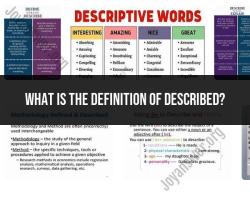How does language influence thought?
Language exerts a significant influence on thought and cognitive processes in various ways. While it doesn't entirely determine thought, it plays a crucial role in shaping the way we perceive and understand the world. Here are some insights into how language influences thought and cognitive processes:
Categorization: Language helps us categorize and organize our experiences. Different languages have different ways of categorizing the world, and these linguistic categories influence how we perceive and think about objects and concepts. For example, languages that require gendered nouns can influence how people perceive and attribute characteristics to objects based on their gendered category.
Vocabulary and Conceptualization: The words and terms available in a language can shape how we think about and conceptualize the world. For example, if a language has multiple words for different types of snow, speakers of that language may be more attuned to variations in snow types compared to speakers of a language with a single, generic word for snow.
Expressing and Communicating Thoughts: Language is the primary tool for expressing and communicating our thoughts. The structure and vocabulary of a language determine how efficiently and precisely we can convey our ideas and emotions. The limitations of language can influence how effectively we can express complex or nuanced thoughts.
Metaphor and Analogy: Language often relies on metaphors and analogies to explain abstract or complex concepts. The metaphors we use can influence how we conceptualize and understand these abstract ideas. For example, the metaphor "time is money" shapes how we think about time and resource management.
Grammar and Syntax: The grammatical structure and syntax of a language can influence the order in which ideas are presented and the relationships between ideas. Different languages have different word orders, and this can impact how speakers process and organize information.
Cultural Norms and Values: Language reflects and reinforces cultural norms and values. The words and expressions used in a language can reveal cultural priorities and beliefs, which can, in turn, shape the way individuals think and interact with the world.
Bilingualism and Multilingualism: People who are bilingual or multilingual often report different thought patterns and even personality traits when using different languages. This suggests that the language being used can influence cognitive processes and how individuals perceive and react to situations.
Whorfian Effects: The Sapir-Whorf hypothesis, which proposes that language can influence thought, has led to studies showing that language can affect perception, memory, problem-solving, and decision-making. For example, some studies have suggested that the language used to describe colors can influence how people perceive and remember those colors.
It's important to recognize that while language has a significant influence on thought and cognitive processes, it is not the sole factor. Personal experiences, emotions, cultural context, and other cognitive mechanisms also play essential roles in shaping how we think and perceive the world. Additionally, individuals have the capacity for abstract and flexible thought, allowing them to adapt their thinking to different linguistic and cultural contexts.
The Power of Language: Its Profound Influence on Thought
Language is a powerful tool that shapes our thoughts in profound ways. It is the foundation of our cognition, allowing us to think abstractly, reason logically, and solve problems. Language also helps us to understand and experience the world around us, and to communicate our thoughts and feelings to others.
One way that language influences thought is by shaping our perceptions. The words we use to describe the world can affect how we see it. For example, if we are constantly bombarded with negative news stories, we are more likely to develop a negative view of the world. Conversely, if we focus on the positive aspects of life, we are more likely to have a positive outlook.
Another way that language influences thought is by shaping our categories. We use categories to organize our thoughts and experiences. The categories we use can affect how we think about things. For example, if we categorize people into different groups, we may start to see those groups as different and separate. This can lead to prejudice and discrimination.
Language also influences thought by shaping our concepts. Concepts are mental representations of things, such as objects, ideas, and events. The concepts we have for different things can affect how we think about them. For example, if we have a narrow concept of what it means to be successful, we may be more likely to focus on material success and less likely to focus on other important aspects of life, such as relationships and personal growth.
Language's Role in Shaping Thought: An Intricate Connection
The relationship between language and thought is intricate and complex. On the one hand, language is a tool for expressing thought. We use words to communicate our ideas and feelings to others. On the other hand, language also plays a role in shaping our thoughts themselves.
One way to think about the role of language in shaping thought is to consider the concept of linguistic relativity. Linguistic relativity is the hypothesis that the language we speak influences the way we think about the world. For example, some languages have more words for different colors than others. This suggests that people who speak these languages may have a more nuanced understanding of color than people who speak languages with fewer color words.
Another way to think about the role of language in shaping thought is to consider the concept of priming. Priming is the process by which exposure to one stimulus influences our response to a subsequent stimulus. For example, if we are shown a picture of a happy face before being asked to solve a problem, we are more likely to come up with a creative solution to the problem. This is because the happy face has primed us to think positively.
Language and Cognition: Examining Their Symbiotic Relationship
The relationship between language and cognition is symbiotic. This means that they are mutually dependent and beneficial to each other. Language helps us to develop our cognitive skills, and cognitive skills help us to learn and use language more effectively.
For example, children who are exposed to a rich language environment are more likely to develop strong cognitive skills, such as problem-solving and critical thinking skills. This is because language provides children with the tools they need to think abstractly and reason logically.
Conversely, cognitive skills help us to learn and use language more effectively. For example, children who have strong problem-solving skills are more likely to be able to decode new words and learn complex grammar rules.
The symbiotic relationship between language and cognition is essential for our success in life. Language helps us to learn and grow, and cognitive skills help us to use language effectively to achieve our goals.
Overall, language is a powerful tool that shapes our thoughts in profound ways. It is the foundation of our cognition, allowing us to think abstractly, reason logically, and solve problems. Language also helps us to understand and experience the world around us, and to communicate our thoughts and feelings to others.













